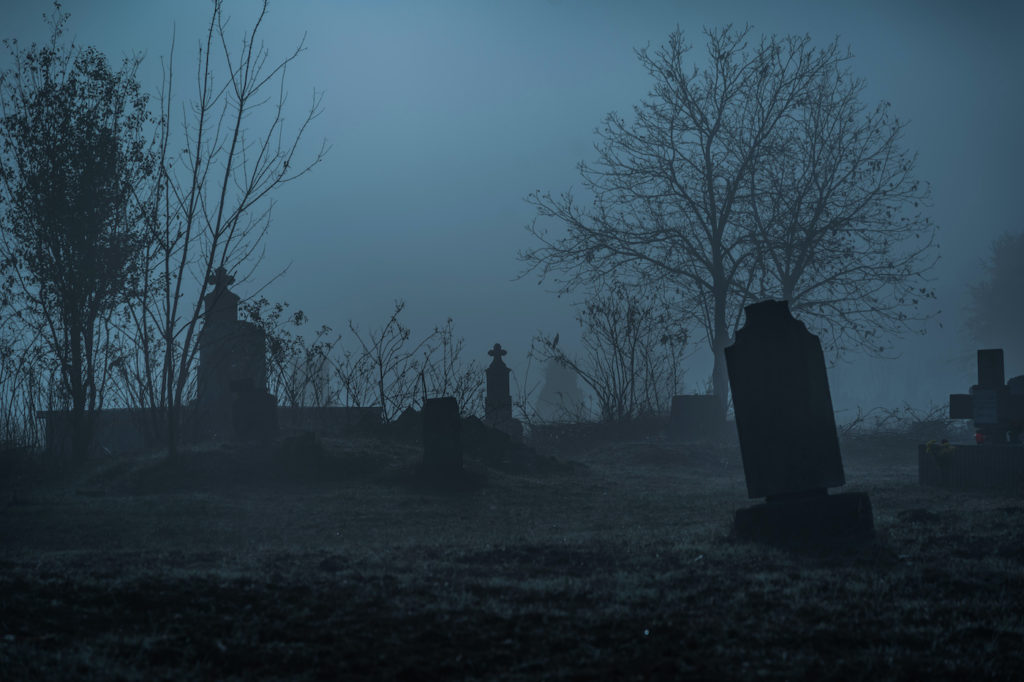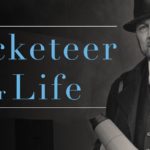Ambition called to me, but I dreaded the chances.
Yet all the while I hungered for meaning in my life.
And now I know that we must lift the sail
And catch the winds of destiny
Start your day with Public Discourse
Sign up and get our daily essays sent straight to your inbox.Wherever they drive the boat.
To put meaning in one’s life may end in madness,
But life without meaning is the torture
Of restlessness and vague desire—
It is a boat longing for the sea and yet afraid.
So reads the tombstone of the character George Gray in Spoon River Anthology, a series of 244 (mostly) fictionalized tombstone epitaphs written by American poet Edgar Lee Masters (1868–1950) about the (somewhat) fictitious town of Spoon River, Illinois. One must say “mostly” and “somewhat” because both the characters and the town are based on Masters’s own experiences in Petersburg and Lewistown, Illinois. In some cases, he doesn’t even bother to disguise the real historical person to whom he is referring.
Gray’s epitaph is one of the most commonly quoted from the anthology. Although it is somewhat obscure now, the book was a critical and commercial success when it was first published in 1915, praised by the likes of Ezra Pound and Carl Sandburg, and even achieving international bestseller status. The continued resonance of Gray’s words explains why: we all know those who, fearing the unknown, chart the easier and safer course, only to regret their cowardice once it’s too late.
Yet the “meaning” that George Gray’s tombstone insists we find is far more terrible than what Masters portrayed as the ignorance, bigotry, and hypocrisy of traditional, religious small-town life. Indeed, though Spoon River Anthology was intended as a haunting vignette of late nineteenth-century “Main Street” America, its vision for improving the nation has been realized in many respects. The results have been terrifying.
Transcending Christian Orthodoxies
Spoon River Anthology sometimes sympathetically renders the pieties of Protestant Christianity that defined the post–Civil War nation. Aaron Hatfield’s tombstone describes his experience at Concord Church on communion day as exemplifying a spiritual ecstasy similar to that experienced by the early Christians at Pentecost. The epitaph for Lydia Humphrey calls the church “the vision, vision, vision of the poets / Democratized!” Even the Catholic priest Father Malloy is praised for his joy and care for his parishioners, while his church is honored for “divin[ing] the heart; and provid[ing] for it.”
Yet cynicism toward the creeds of historic Christianity is the far more pervasive attitude in Spoon River, perhaps unsurprisingly, given that Masters was himself a religious skeptic who bemoaned the fact that Jerusalem, more than Athens, had become “the shrine of the world.” Most of the Christian characters are hypocritical or close-minded. Nicholas Bindle gives much of his wealth to the church, but is financially ruined by a foolhardy clergyman. Deacon Taylor, though a member of the local prohibition party, dies of cirrhosis of the liver, having surreptitiously stolen a drink every day of his adult life. Nellie Clark’s husband deserts her after he discovers that she is not a virgin, a decision the puritanical populace of Spoonville deems ethically acceptable. Wendell P. Bloyd is denounced as a blasphemer because he asks difficult and provocative questions about the Bible.
Spoon River vividly conveys this ubiquitous frustration with late nineteenth-century American Protestantism and the religious indifferentism that emerges from it. J. Milton Miles says he could not distinguish the bell of the Presbyterian church from “that of any other Christian church.” Jodson Stoddard describes the religious thought of Buddha, Jesus, and Plato as all mountain peaks trying, unsuccessfully, to reach heaven. A Chinese immigrant encouraged to attend Sunday School is urged “to drop Confucius for Jesus.” But, he responds: “I could have been no worse off / If I had tried to get them to drop Jesus for Confucius.” Jarringly, he is killed by the minister’s bigoted son.
For many of the dead, a bland, contradictory, and intellectually stunted American Protestantism is succeeded by a nondenominational spiritualism defined by intellectual curiosity, emotional ecstasy, and—most emphatically—human volition. Tennessee Clafin Shope explains: “I asserted the sovereignty of my own soul. / Before Mary Baker G. Eddy even got started / With what she called science I had mastered the Bhagavad Gita.” The Village Atheist in turn declares: “Immortality is not a gift, Immortality is an achievement; And only those who strive mightily / Shall possess it.”
For many of the dead, a bland, contradictory, and intellectually stunted American Protestantism is succeeded by a nondenominational spiritualism defined by intellectual curiosity, emotional ecstasy, and—most emphatically—human volition.
Marriage the Obstacle, Sex the Vehicle
Many of Masters’s dead speak of feeling trapped in marriage, perhaps a not-so-implicit allusion to the author’s own frustrations with married life. Masters engaged in frequent affairs during his first marriage. In 1917, he left his family, and nine years later he married a woman thirty years his junior. Fletcher McGee says of his wife: “she took my strength by minutes, / she took my life by hours” and Benjamin Pantier declares that his wife “snared my soul / With a snare which bled me to death.” Perhaps even more revealing is the promising young female poet Margaret Fuller Slack, who marries young, has eight children, and never realizes her professional dreams. Traditional marriage, then, is a serious impediment to men and women’s realizing their material and spiritual good.
The most aggressive attacks on marriage in Spoon River cite the suffering of children caught in the cross hairs of marital strife. Trainor the Druggist observes that parents who hate each other cause unforeseen griefs for their children. Mrs. Charles Bliss bemoans “preachers and judges” who warned her against divorcing her husband, though, she claims, her obedience to those exhortations caused terrible outcomes for their children. Given all the suffering caused by bad marriages, Mrs. Williams wonders:
If all of the children, born here in Spoon River
Had been reared by the
County, somewhere on a farm;
And the fathers and mothers had been given their freedom
To live and enjoy, change mates if they wished,
Do you think that Spoon River
Had been any the worse?
There is also sympathy toward those whose sexual liberalism resulted in unwanted children. Thus, Doctor Meyers is described as a tragic hero who is disgraced and punished by the community for his willingness to “help” pregnant women by providing abortions. Newspaper editor Whedon, in turn, cynically remarks on the aborted fetuses in the sewage of the village, hiding the community’s sexual liaisons.
As with progressive activists in our own day, these pro-abortion sentiments are united to a broader narrative about caring for the impoverished and marginalized. Barry Holden, a poor father of eight whose house is mortgaged to one of Spoon River’s wealthy elites, kills his pregnant wife in a fit of desperation. Clarence Fawcett steals blankets to pay a doctor’s bill for his little girl, and his reputation is destroyed by a newspaper that exposes him as a thief. If only they had not conceived children they were unable to provide for!
Feeding the Soul
Would Masters be surprised that a book that provoked so much controversy a century ago for its cynicism toward organized religion and marriage now exemplifies common opinions in America? Indifferentism is the defining feature of American religious opinion in the twenty-first century. Earlier this year, Gallup reported that U.S. church membership had fallen below the majority of the population for the first time since it started measuring it in 1937. What has replaced traditional Christian observance is not atheism, but what Tara Isabella Burton describes in Strange Rites as a syncretistic “institutional spirituality.” Its adherents unite a diversity of religious beliefs and practices spanning the prosperity gospel, yoga, Buddhist meditation, Wiccanism, and shamanism.
So too has traditional marriage declined both in influence and practice. Marriage rates have reached an all-time low, declining almost 25 percent in just the last twenty years. The U.S. divorce rate is one of the highest in the world. An increasing number of Americans—at least five percent—are currently practicing polyamory, or what is often called “consensual nonmonogamy,” while one in five Americans has been in a polyamorous relationship at some point in their life. And, of course, federal and state resistance to abortion collapsed less than a generation after Masters’s death, resulting in more than 62 million abortions since Roe v. Wade.
Spoon River Anthology, a clever and eerie indictment of American society, has proven more prophetic than the Midwestern poet could have anticipated.
Many of Masters’s characters yearn for an America less religiously uniform and more sexually permissive. “Love of women / And even love of wine, / Are the stimulants by which the soul, hungering for divinity, / Reaches the ecstatic vision / And sees the celestial outposts,” declares the tombstone of Ezra Bartlett. They have largely got their wish. And the results have been disastrous.
The shrinking of religious membership—which among many benefits facilitates robust social networks, volunteerism, and improved mental and emotional health—is threatening the nation’s social safety net, creating a larger burden on the state. As Christianity has declined, there has been a marked increase in depression and suicide. Divorce, meanwhile, is associated with a host of negative social indicators, including social and psychological pathologies, truancy, teenage delinquency, teen motherhood, and suicide attempts.
Yet so many of Masters’s characters, like today’s progressives, maintain a snobbish disdain for the values of the old world. Reflecting a post-Christian WASP elitism, Archibald Higbie’s tombstone reads: “There was no culture you know, in Spoon River.” The community was, in the words of fellow deceased Spoon River resident Harmon Whitney, “a village of little minds.” One must eclipse these rural rubes to secure happiness, says the hedonist Edmund Pollard: “Is your soul alive? Then let it feed! Leave no balconies where you can climb.”
For all its flaws, Masters’s magnum opus at least considers both sides: believer and apostate, happy and terrible marriages, fools who thought themselves brilliant, and brilliant people thought to be fools. Nevertheless, certain voices speak louder (in large part because they are the most common): the religious nonconformist, the libertine free of antiquated commitments, the pretentious and paternalistic intellectual. All of these archetypes frighteningly correspond to those of our own secular, “liquid modernity.”
Spoon River Anthology, a clever and eerie indictment of American society, has proven more prophetic than the Midwestern poet could have anticipated. “It takes life to love Life,” declares married mother of eight Lucinda Matlock, who dies happy and fulfilled in her familial and religious obligations. It is unfortunate that a growing number of Americans have failed to heed her advice. To return to the epitaph of the unadventurous George Gray, it’s no use charting out into the deep if one is ignorant of navigation . . . and lacks a compass.














